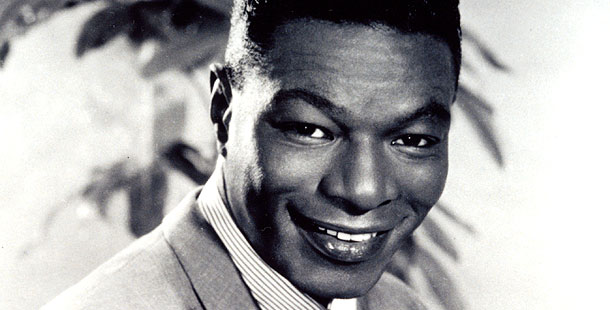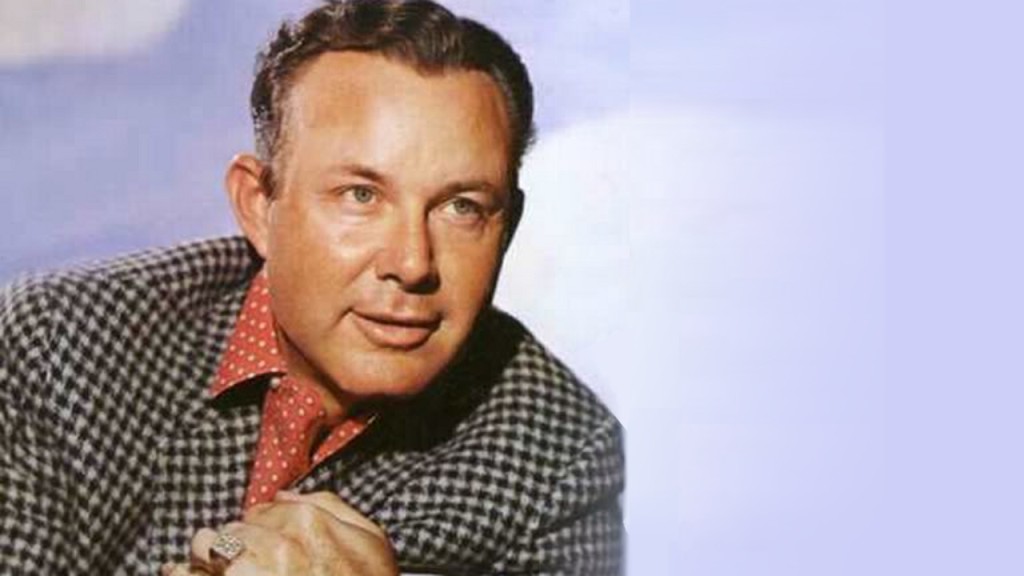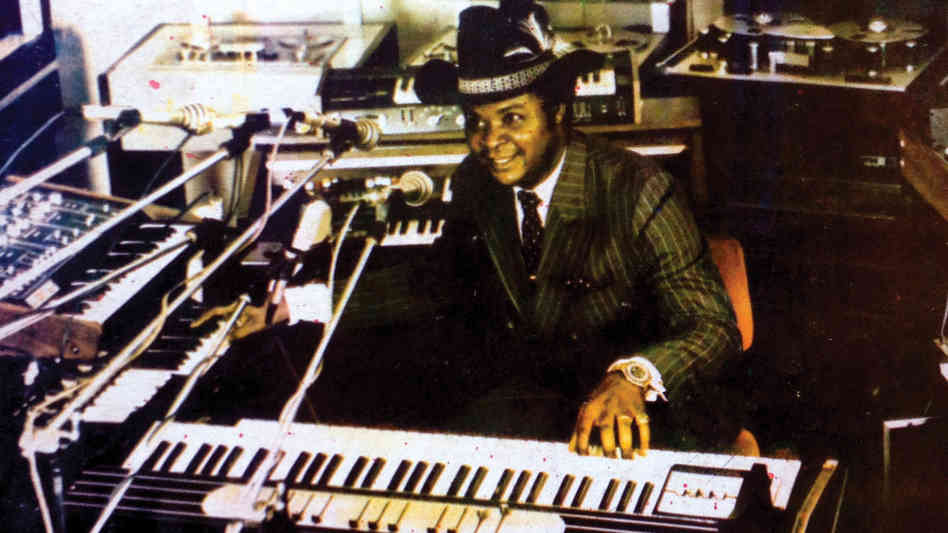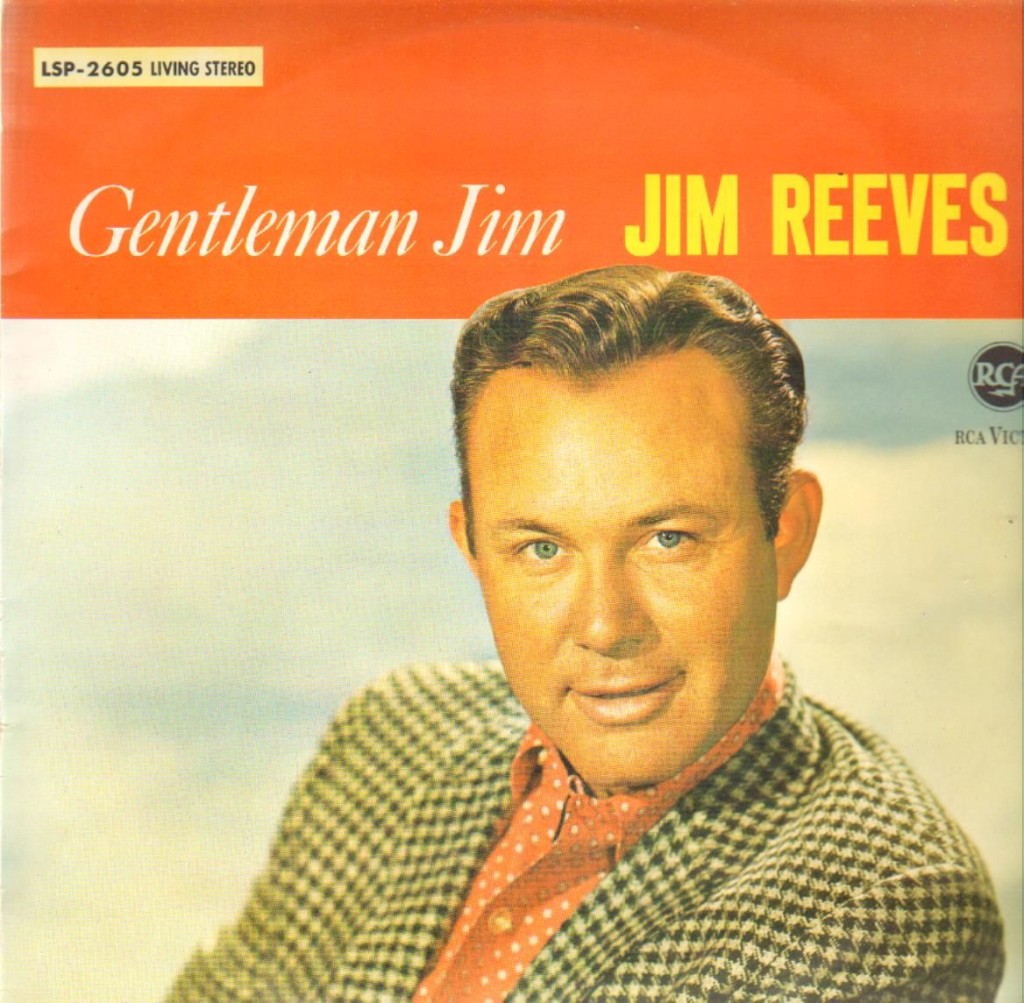Uchenna Ikonne is the writer, researcher and DJ behind the blog With Comb and Razor, and the excellent compilation, Brand New Wayo: Funk, Fast Times and Nigerian Boogie Badness 1979-1983 as well as "Who Is William Onyeabor." Producer Sam Backer interviewed Uchenna as part of the research for the Afropop program "Accounting for Taste."
Sam Backer: How popular is country music in Nigeria?
Uchenna Ikonne: Country music has been popular across Africa for a very long time. I don't know when it became popular exactly, but I know that it's been in circulation for at least the 1920s or 1930s, perhaps.
So, really the same time that it was coming into widespread popularity in the United States.
Exactly. So Jimmie Rodgers, for example. Jimmie Rodgers was probably the main pioneer of country music in general and he was also one of the first country music artists to find some popularity in Africa.
Jimmie Rodgers
So his records were distributed and sold?
Not only him, but his records were quite popular. They were on 78s.
Somehow, in a lot of ways, Jimmie Rodgers makes some sense. He--I mean, he yodels! Jimmie Rodgers is kind of intense music. The thing that I find remarkable is that there's a much smoother sound that was also very, very popular.
I would say that the style that probably achieved the most popularity and has remained popular is the Nashville sound. That is the sound that was pioneered by Chet Atkins and other Nashville musicians and producers and that was a lot smoother than the honky tonk style that had come before; it had rich background vocals and strings. I think that is the style that has endured most of all.
So when that style first came out in the '60s, was there any particular segment of society that listened to it?
I think that everyone listened to it, because it was played on the radio and it was very appealing to the whole population.
How were the radios set up then?
Well, there was a lot of stations. Let me talk about Nigeria: Nigeria had the Nigerian Broadcasting Service, and they had the western arm of that, and the eastern arm and also the northern. They also had diffusion, they also had broadcasts from other African nations. I believe that they still had access to the BBC, too--I don't think that Voice of America had come in by the late '50s, but radio was quite popular.
And country music was played as regular segmented blocks or just kind of interspersed among the general pop?
Probably it was integrated into the Western pop segments. A lot of time people didn't even call this music "country music," it was called "sentimental music" so it could be played in a block that also included artists such as--who can I say...Think of that sentimental 1950s pop sound...It could be the Andrews Sisters...
Can you just say a little more about "sentimental music"? Just the idea of that as a category?
In some quarters, Western pop music as a whole was called sentimental music. You know, Western pop music at that time, in the pre-rock 'n' roll era, what was considered pop music in the West was very melodic and usually a bit sentimental, which differed from rhythmic music. You'd often hear about the "rhythmic," the "So and So Rhythmic Orchestra," and that was jazz and other musics of that kind. So the very richly melodic music was often called sentimental.
Was that--primarily, but not entirely--raced? You could have a Nat King Cole song fit in "sentimental..."
Yes, yes. Nat King Cole was very popular in Africa, he was a top sentimental artist in Africa.
Interesting. Maybe I'm putting my categories on that music, but did that semi-racialized...Did that have an impact on the way that music was heard, and the role it played in society?
Racialized--why do you say racialized?
Well, I was just thinking that when we are talking about country, it tends to be white music. At least in America, it's white music, or considered white music.
That's a really interesting thing. That's an issue that I've always found really interesting concerning the popularity of country music in Africa and the West Indies as well. You know, Africans tend not to have the same concepts of racial dynamics that we do in the States. I mean, of course, there is an awareness of it, but at the same time it does not come into play in the exact same way. Often times race tends to be perceived more as culture. So someone like Nat King Cole, despite the fact that he is a black man, was still considered to be white music because he comes from the land of the white people. So country music was not perceived as white music, at least not more so than jazz was, or any other kind of Western music.
And that's despite the sentimental versus rhythmic divide.
Yeah, yeah. The qualities of sentimental and rhythm were not really ascribed any racial values per se.
So how did this music connect--or did it--connect with local forms of pop music?
You mean country music in particular?
Country music or sentimental music.
A lot of the orchestras, which came up playing the Western orchestral instruments in the 1940s and early '50s, brass instruments, they usually played sentimental music. There were some of them that played jazz, which was rhythmic music, but it wasn't as well received as the sentimental music was. And that actually did end up having an impact on the development of local formats, when those orchestras started shifting their repertoire more towards indigenous genres.
And in a lot of ways that's the heyday of country music in the United States, too.
I would say that the heyday of country music in the United States started in the late '50s. That was when the Nashville sound developed. And the Nashville sound was a commercialization of country music. Country music before that was a lot more hard-edged, but the Nashville sound came about to try to smooth out those edges, to add those lush strings and very slick vocals, slick production background vocals, choruses. Before that country songs didn't really have that kind of pop structure to them, and it was just in the late '50s that you started to see that coming in.
So as more local formats started to develop along with a locally based record industry, did that effect the popularity of country?
Not really. People still enjoyed it and people continued to enjoy it. I would say that local bands probably didn't include it in their sets as much, but people still enjoyed listening to it on the radio, and they still bought the records in the thousands.
So it's just another slot.
Yes. It started becoming known not just as sentimental music, but as contemplative music.
Really?
The thing about country music though, despite the fact that its lyrical concerns were very similar to what you would find in 99 percent of Western pop music--which is basically the ups and downs of romantic relationships--people tended to ascribe a kind of spiritual quality to the music. I think there are a lot of reasons for that. First of all, it's probably the sound of it: country music always had very curious sounds--whether it's the nasal vocal style or the yodeling, or whether you are talking about those very high pitched and keening instruments, like the pedal steel guitar or the string sections that came in during the Nashville period, a lot of these sounds had an otherworldly quality that I believe that African artists tended to interpret as spiritually reparative. So despite the fact that they were singing "You done left me and now I'm drinking," people really felt that there was something about that music that was beyond sensual concerns.
Does that have anything to do with its historic ties to gospel?
It could. It could be...There is something very spiritual about the structure of gospel, and that could be it. But I also think that it has to do with the fact that the music--it pulls on your heartstrings. And, at the same time, it wasn't really dance music. At least not in the way that most Africans would understand dance music. I suppose back in Nashville people would do their little fox trot or something to some of this music, but I think to the African audience, it wasn't rhythmically hot enough to really serve as dance music, or even as a slow-jam music so to speak. So since it wasn't really music that appealed to the body, it was perceived as something that appealed more to the soul.
And then you had the soothing vocal style--and I'm jumping way ahead in time right now to make reference to the 1970s--Don Williams. Don Williams was a very, very popular artist because of that very deep and soothing timbre that his voice has. There's something about that that I think people believe is spiritual. There was something otherworldly about the sound of country.
So it assumes a totally different valence, a different kind of meaning is assigned to it, because that is a very different interpretation of the country sound than is true in the States, for instance. Can we talk about any other particular artists? From what I've read and I've heard that Jim Reeves is particularly popular. Can you talk about him?
Jim Reeves remains popular in Nigeria. I can remember being a kid in the '80s--Jim Reeves tapes and records where everywhere, and it seemed as if there were new Jim Reeves records out every month. I had no idea that the man had died in the 1960s, because he seemed to be very much alive. And that's still the case today, and his records are played all the time. And he has had a lot of influence on local artists as well, for example--You're familiar with the highlife musician Stephen Osita Osadebe?
Yes.
He was greatly influenced by Jim Reeves and Nat King Cole.
In what part of his style do you think?
The smooth crooning quality of his style, that was a relative innovation in highlife. Like if you compare his style to, say, Rex Lawson. Rex Lawson has a very harsh and raspy style to his singing, while Osadebe was more of a crooner, he had a very soft rounded voice. And, you know, he often used to tout the power of his music to cure hypertension, it was music that was supposed to make you relax and contemplate, and that was the place that country music originally occupied.
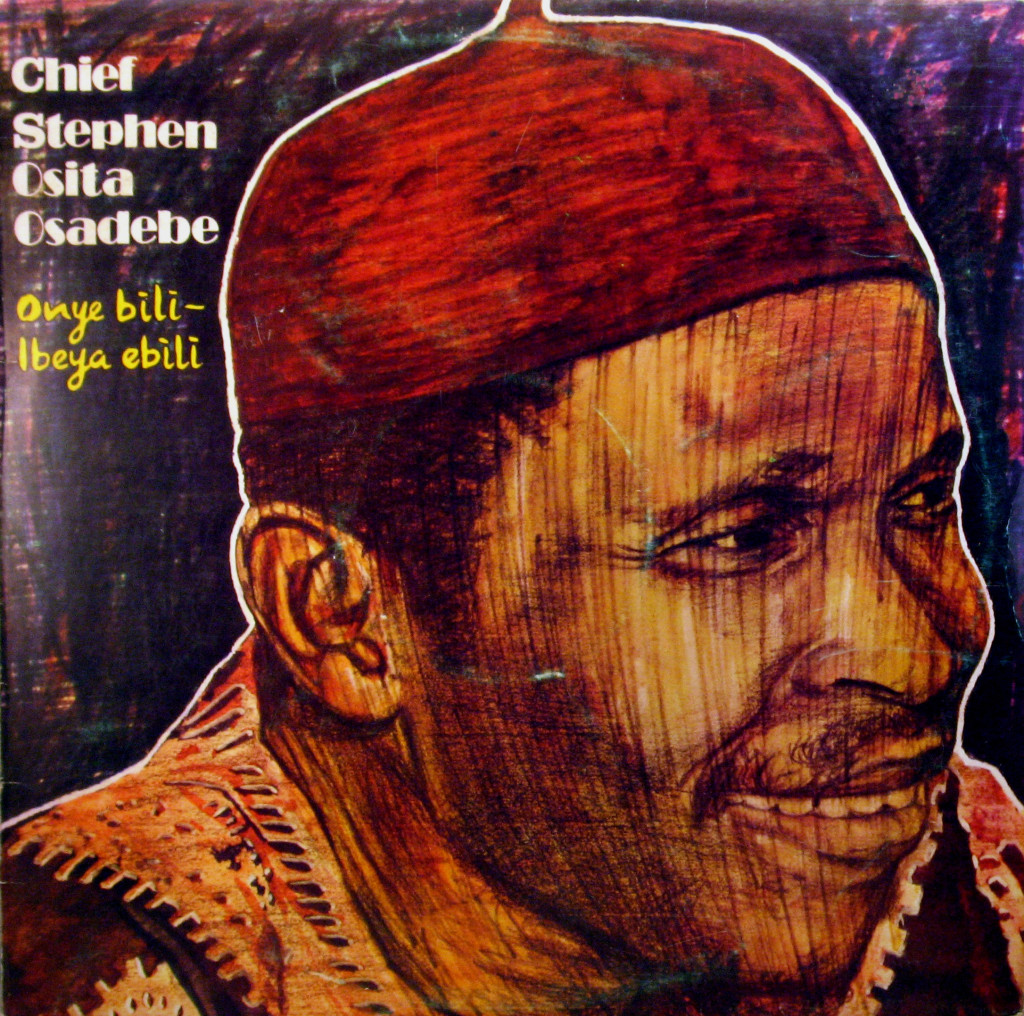
So he actually positioned his music as heir to some of those qualities of country?
Yeah, yeah. I can give you another one. Are you familiar with William Onyeabor? He was very influenced by Jim Reeves as well, in his vocal approach. Of course, when you listen to the music and you hear that sort of synth funk, you're not going to think of Jim Reeves. But listen to his vocal approach. Again, you have that soft-edged crooning quality. And not only that, you also need to take a look at his lyrical texts. I mean, he has these songs that have this strong moral message to them. Jim Reeves, he sang all kinds of material, make no mistake, but some of the stuff that he's most famous for in Africa, is some of his gospel material, or rather, I shouldn't even call it gospel, I should say inspirational material. Because, while it is more or less gospel, it's not praise music, it doesn't really evangelize for Jesus Christ, but it tries to promote a positive message of godly living. And that is exactly what Onyeabor was trying to do in his music, and he told me, he told me directly that was what he was trying to do and what he was emulating.
Do you think--not praise, but moral admonition, moral instruction--Do you think that's a more general trend within Nigerian religious music?
Well, you know, African music tends to place much of a premium on being the medium for a positive message, so I don't want to suggest that the idea of message music comes exclusively from Jim Reeves or country. But the reason that I single someone like Onyeabor out is the tenor of his message music--it's not indigenous. There is a more indigenous style of delivering messages, and it's usually a style that's a bit more proverb driven. But what Onyeabor was doing--If you compare the tenor of his lyrics with some of Jim Reeves' stuff, like "Across the Bridge," or "I can't feel at home in this world anymore," I don't know if that's the title of the song, but that's the refrain--That's very much what Onyeabor was doing.
I was actually looking at Web forums today, and there was an avid discussion of "Across the Bridge."
Yeah, really?
Yeah. On nairaland.com
Yeah really? OK, OK. I know Nairaland.
So I mean, this stuff still really has currency.
Yeah, yeah! It's Sunday morning music. Everybody has it in their house and they listen to it on Sunday morning, when you're cleaning the house and getting ready to go to church or when you come back from church and are preparing lunch, everyone listens to their Jim Reeves and their Don Williams.
I was listening to that mix you made, and it seems as if there is this moment when musicians weren't just pulling in elements of country music, but they were also making things that were very directly, obviously influenced by it as well.
Yes. There are very few artists who styled themselves as country artists, you know, country all the time. But many artists did experiment with the style.
Could you tell me about one or two of them?
In Nigeria, the top artist [who could be defined as a country artist] was Emma Ogosi. He was a pop singer who started his career during the soul era, in the 1960s. He started with a soul group called the Expenses, and later on in the '70s, he was with a group called Pogo Limited. When he embarked upon his solo career in the 1980s, he devoted a lot of his repertoire to country-style ballads, although eventually I think he did drift towards reggae. But he was always known as Nigeria's top country singer and he is really the only one I can think of who was really defined as a country singer.
It's interesting. I was listening to him today and I definitely heard that drift towards reggae.
Reggae... I think reggae, later on, in some quarters, had the same reverence, it did attract the same kind of reverence that country once had. Certain kinds of roots reggae were thought of as spiritual contemplative music, so it was only natural to try to cross those wires. I believe it was Willie Nelson who once said that country is the white man's reggae.
It's also interesting that country is very popular in Jamaica.
Yes it is. Jim Reeves is very popular in Jamaica.
Do you think that reggae kind of stole some of country's popularity?
No, it didn't. Reggae is still popular, but it's not as popular as Jim Reeves. Jim Reeves is an immortal. Bob Marley is also an immortal, but Jim Reeves is a completely different level. You know, sometimes I think there might be a racial component. There might be a racial thing to it to be honest, on some level.
It's interesting. Jim Reeves is not known as an immortal here, he's not in the country pantheon that people talk about in the U.S., that I've been aware of. But he released an extraordinary amount of material. Do you think it's fair to say that there's a Nigerian Jim Reeves, that certain tracks are selected from his catalog to create a Nigerian version of him?
Probably. Like I said, his material was all over the place at one point, and you could hear the wide range of material that he covered. But I think that over the years, I think that has been whittled down to certain essential albums and songs by him that are the songs that people think about when they speak of Jim Reeves.
Which ones?
And a lot of that is that inspirational stuff that I mentioned, but also some of the romantic stuff as well.
What are some of the things that have been whittled down to?
Some of the popular Jim Reeves albums that I can remember are: "According to My Heart," that's not one of the really popular ones but it's still there. There's "Across the Bridge." There's...Best of Jim Reeves Sacred Songs. "God Be With You." "Gentleman Jim!" "Gentleman Jim" is another one that's quite popular...
One of the things that's interesting about Jim Reeves, and I'm wondering when I'm comparing him to people who are popular everywhere, like Celine Dion, and both of them--Jim Reeves had a very international slant to his music. I mean, clearly people don't speak Afrikaans in Nigeria but he recorded in Africa.
He actually made a movie in South Africa.
So I'm just wondering if the international slant to his music helped his popularity.
It probably did. That was just another example of Nashville adapting some of the machinery of the mainstream pop world to internationalize their music, because it was quite common for pop singers like Nat King Cole to record their songs in a number of languages, and Nashville was only copying what was going on in the pop world. And that probably did a lot to expand the audience.
Thinking about that sentimental music category that we were talking about before: Why do you think that country music lasted so much longer than Nat King Cole, or than equally smooth African-American forms, like Marvin Gaye or gospel? I mean, there's a lot of smooth music out there.
Yeah, that's a very good question. I don't know, I really don't know. I mean Louis Armstrong was extremely popular, but you don't hear his music these days. I think it's just the fact that music was so elevated, even at the time it was released, people believed that it was timeless, something that was not necessarily bound by current trends. It endured because people wanted it to endure, people expected it to endure, and they treated it as music that was supposed to stand the test of time.
And do you think any of it could be the Christian elements? I mean, it's not necessarily always overtly Christian, but there are definitely really strong Christian undercurrents in it.
That could be, but you know...Paul Robeson was hugely popular in the 1940s and he sang some music with Christian elements in it as well, but why don't we hear about him today? Because we don't.
Was Jim Reeves popular in Muslim parts of Nigeria as well?
[Laughs] That's a good question! I want to say yes, but I don't know really. I know that Jim Reeves was popular all over the country and all over West Africa and South Africa and most parts of Africa that I knew of really, but I can't tell you specifically how he was received in the Muslim world. I wouldn't be surprised if he was popular there as well. It was not really perceived as dance music, and that would make it much more palatable to Muslims. Because it wasn't worldly music, I mean of course within the context of Islam it wasn't Islamic music, but it had its spiritual quality and it was not lustful music.
Are there other areas of Nigerian music that were influenced by American country?
Another influence I would really say was on juju music. Juju, in the late 1960s into the '70s, started to adapt the sound of country guitars, so that was another place. And country melodies as well.
Do you know anything about how that happened? I know the pedal steel obviously.
How that happened? The same way that happened with Stephen Osita Osadebe or anyone else: They enjoyed that sound in pop music, and they wanted to sophisticate their sound and give it the quality that made this foreign pop music so powerful, so they adapted that sound into juju.
Is juju considered contemplative music?
No, it is not. I guess they felt--I've often felt that the perception is that there is a spirituality to a lot of these sounds in country music. You know with the strings, with yodeling, with the pedal steel, it tends to be this very keening sound in the higher register. And you know, often times in Africa, we interpret falsetto sounds as having a certain spiritual ecstasy to them.
So even though juju was not contemplative music, it was a dance music, I guess they wanted to create an ecstasy, which they did! Thanks so much for talking with us.
Thank you, Sam.
Related Audio Programs











